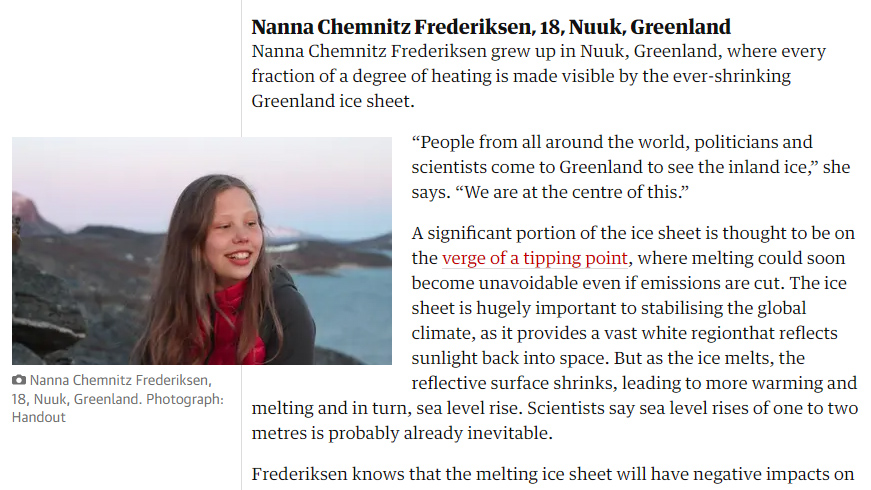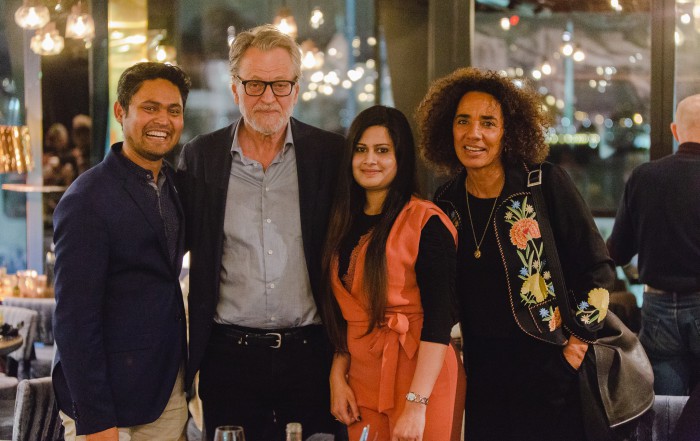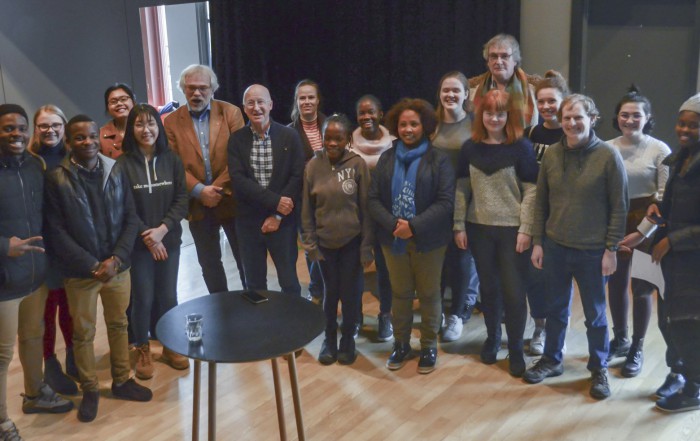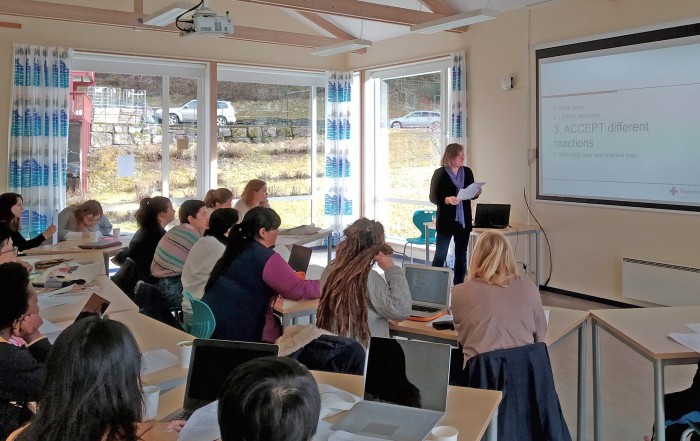“People from all around the world, politicians and scientists come to Greenland to see the inland ice,” she says. “We are at the centre of this.”
A significant portion of the ice sheet is thought to be on the verge of a tipping point, where melting could soon become unavoidable even if emissions are cut. The ice sheet is hugely important to stabilizing the global climate, as it provides a vast white region that reflects sunlight back into space. But as the ice melts, the reflective surface shrinks, leading to more warming and melting and in turn, sea level rise. Scientists say sea level rises of one to two metres is probably already inevitable.
Frederiksen knows that the melting ice sheet will have negative impacts on communities across Greenland, especially in northern settlements such as Qaanaaq where permafrost melting is destabilizing homes and roads and impacting how fishers and hunters operate.
But her real concern lies on the impact it will have globally. “I am not so scared of what the effects of the melting of ice in Greenland will be,” Frederiksen says, “It scares me what effect it can have for the rest of the world.”
Latest News
Education Makes Visible
Something unique about the UWC as an educational movement, is the cooperation between the Colleges and the National Committees NC. We are fortunate to have strong NCs in all Nordic countries and work [...]
Nordic Global Concern
Every term we have a special day with no normal classes, where we focus on one of our pillars: Nordic, Humanitarian and Environmental. On Friday 15th March it was time for the Nordic [...]
Psycho-social first aid course
This weekend we held the Psycho-social first aid course for 20 interested students. The course is a part of our Red Cross Diploma and was led by Anita Nelissen Leirvåg. It went into [...]




